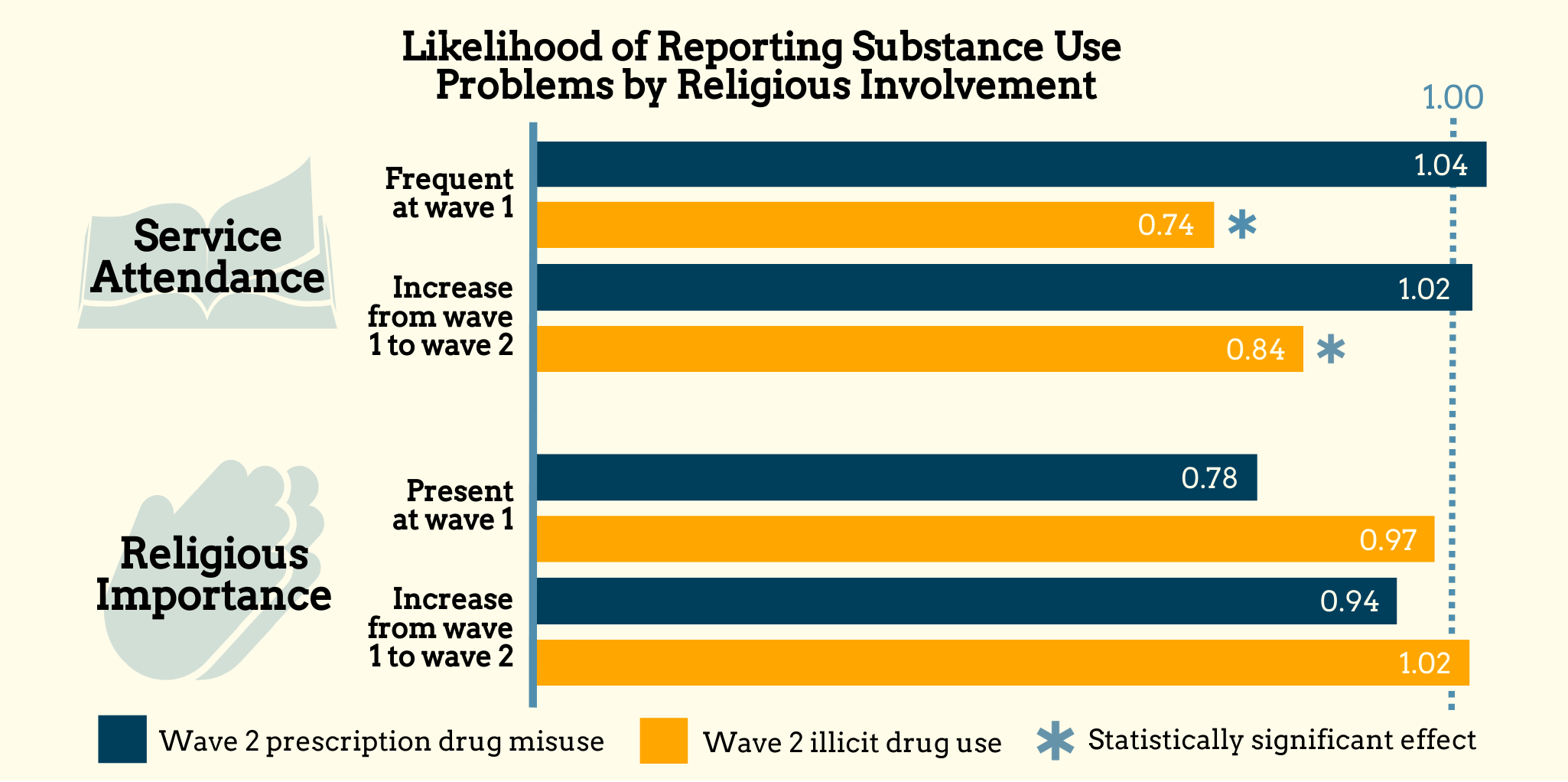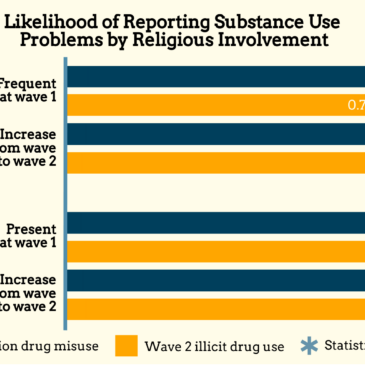People who are involved in religion have lower rates of substance use. Researchers attribute this association to religious teachings of morality, physical health, and respect to authority, as well as social support gained from attending religious services. However, most of these studies focus on adolescents. This week, STASH reviews a study by Amy Burdette and colleagues exploring the relationship between religious involvement and hazardous substance use among a different vulnerable population: single, urban mothers of low socioeconomic status.
What was the research question?
Does religious involvement reduce problem substance use in disadvantaged urban mothers?
What did the researchers do?
The researchers examined data from the Fragile Families and Child Wellbeing Study (FFCWS), a survey of 4,898 American mothers, predominantly single and of low socioeconomic status. Mothers answered questions about frequency of attending religious services, personal religious importance, and past-year prescription drug misuse (e.g., painkillers) and illicit drug use (e.g., marijuana). Specifically, the researchers looked at a subset of 3,176 mothers interviewed both 5 years (wave 1) and 9 years (wave 2) after the birth of their child, and they used logistic regression analyses to determine how religious involvement predicted illicit drug use and prescription drug misuse among these mothers.
What did they find?
Attendance in religious services was significantly associated with likelihood of illicit drug use. Specifically, those who frequently attended services at wave 1 were 26% less likely to report illicit drug use at wave 2, and increasing service attendance between waves 1 and 2 was associated with a simultaneous 16% drop in the likelihood of reporting illicit drug use. Burdette and colleagues found no significant associations between religious service attendance and prescription drug misuse. Interestingly, personal religious importance was unrelated to illicit and prescription drug use (see figure).

Figure. Adjusted Odds Ratios for the relationship between religious involvement and substance use problems. Mothers with no religious affiliation served as the referent group. Click image to enlarge.
Why do these findings matter?
The association between frequency of service attendance, but not personal religious importance, and reduced illicit substance use suggests that social interaction with fellow attendees and participation in the community help to prevent substance use problems. However, attending services did not help protect against prescription drug misuse. One possible explanation is that mothers refrained from using illicit drugs, in part, to avoid judgment from their religious communities, a fear that might be less potent for prescription drug use. Additionally, religious individuals tend to place greater trust in medical professionals, and vulnerable populations such as low-income mothers are more susceptible to overprescription of opioids.
Every study has limitations. What are the limitations in this study?
The FFCWS captures a very specific population, so these results may not extend to other populations such as married mothers. Additionally, the FFCWS uses very simple measures of drug use, and does not assess for other potential confounds such as personality type. For instance, a risk-averse personality could cause both higher service attendance and lower frequency of drug use.
For more information:
Our Addiction Resources page has free, anonymous resources for those concerned about substance use or other expressions of addiction.
— Jamie Juviler
What do you think? Please use the comment link below to provide feedback on this article.




